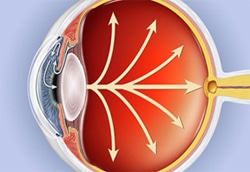Supporting Vision Care in Singapore: Your One-Stop Eye Specialist Centre for Optimal Vision
What Can An Eye Specialist Do For You?
In Singapore, there are numerous eye treatments offered by eye specialists in Singapore which aim to improve eyesight and vision.
We have listed some common eye diseases and treatments below:
1. Laser vision correction (more commonly known as LASIK) is a surgical procedure that is sought by those with myopia, hyperopia, astigmatism and presbyopia, and who no longer wish to use glasses and contact lenses to see well. While most are generally suitable for the procedure. There is a handful who may be excluded – those who have eye diseases like keratoconus, glaucoma or cataract. An eye specialist who performs LASIK surgery can determine your suitability through a thorough LASIK evaluation which includes various eye tests and an eye examination by your LASIK surgeon. The procedure involves creating a corneal flap on the surface of the cornea, the flap will be folded backwards and an excimer laser will be used to reshape the corneas to allow light to pass through our eye and properly focused on the retina for clear vision.

2. Oculoplastics is a speciality which focuses on both functional and aesthetic aspects of the eyelid, orbit and lacrimal system in adults and children:
3. Retinal detachment occurs when the retina is pulled away from its normal position. Some symptoms that you might notice are a sudden increase in floaters, flashes and curtain vision. If retinal detachment is not treated timely, the retina can detach even more and cause permanent vision loss hence, it is a medical emergency. If symptoms arise, see an eye specialist immediately who will dilate your pupils to look at the retina. There are a few treatment options depending on the severity of the condition. Some of the most common treatments include laser photocoagulation which creates small burns around the edges of the tear and scars are formed to prevent fluids to leak into the retina causing a detachment. Retinopexy is performed by injecting bubbles of air or gas. The bubble pushes onto the area of detachment stopping the flow of fluid into the retina. Vitrectomy involved the removal of the vitreous along with tissue that might be tugging on the retina. Silicon, air or gas will then be injected into the space to help flatten the retina.

4. Glaucoma is sometimes known as the ‘silent thief of sight’ as during the early stages, it can have little to no effect on vision. By the time you realise your vision is affected, there might already be a significant loss of permanent vision. Thus, it is important to diagnose glaucoma as early as possible. If you have any family members who have glaucoma, high eye pressure or narrow anterior chamber angle, it is advisable to go for glaucoma screening with an eye specialist. For those who are diagnosed with glaucoma, treatment will commence immediately to prevent glaucoma from deteriorating further. Most treatments start with medicated eyedrops to lower eye pressure to prevent damage to the optic nerve. If eye pressure remains high, peripheral iridotomy (a laser procedure), which creates a small opening on the iris to help fluid drain out can be performed to lower the eye pressure.

5. Floaters usually do not require any treatment. The eye specialist however though will first need to ensure floaters are not caused by serious conditions such as bleeding, inflammation or retinal detachment.
If you faced any of the above eye issues, contact us at +65 6694 1000 or manager@eyemax.sg to schedule an appointment with our eye specialist.
